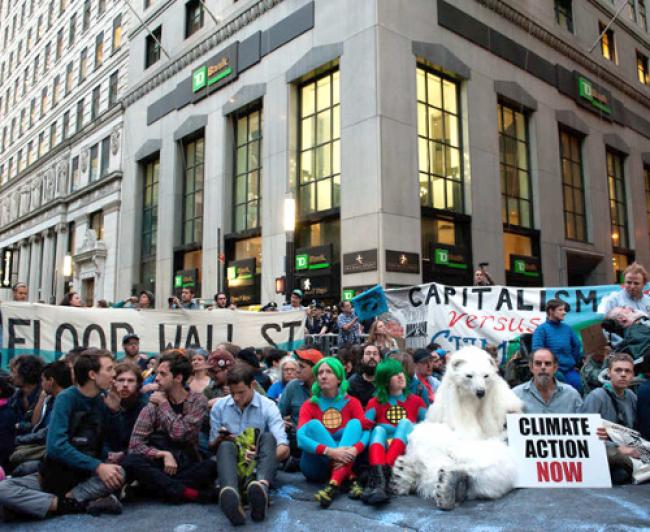Articles Menu

The world's largest ever march against climate change on Sunday (21 September) brought 400,000 people to the streets of New York, starting a lively parade at Central Park. On Tuesday, 120 of the world's political leaders – notably not including the Chinese and Indians – gathered 25 blocks away at the United Nations. The message they got from society was symbolized by the march route: instead of heading toward the UN building, the activists headed the other way, west. This directional choice reveals that hope for action on climate change comes not from the apparently paralyzed heads of state and their corporate allies, who again consistently failed on the most powerful challenge society has ever faced: to make greenhouse gas emissions cuts necessary to halt certain chaos.
Instead, momentum has arisen largely from grassroots activists, even those fighting under the worst conditions possible, amidst denialism, apathy, corporate hegemony, widespread political corruption and pervasive consumer materialism. Nowhere is this better illustrated than in the place which according to Pew Research polling of major countries, suffers the second most poorly educated citizenry on climate (only 40 per cent acknowledge it is a crisis): the United States itself. (Keep travelling west and the country with the least knowledge of climate – only 39 per cent are informed – emerges on the horizon: China. In Brazil, awareness is 76 per cent.)